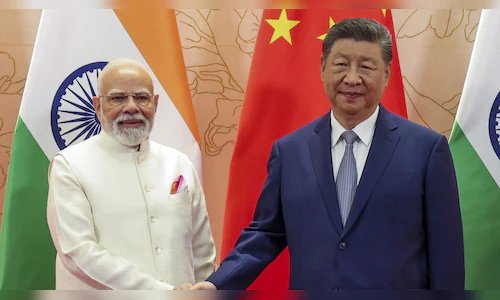Sources told CNBC-TV18 that the meeting will be chaired by Principal Secretary-2 to the Prime Minister Shaktikanta Das, with representatives from the Department for Promotion of Industry and Internal Trade (DPIIT), Department of Economic Affairs (DEA), Ministry of External Affairs (MEA) and other stakeholder ministries who are understood to have participated.
The high-level review comes at a time when the government is facing rising trade frictions with the United States, which has repeatedly flagged India’s restrictive investment filters. According to officials, the Centre has been evaluating whether the pandemic-era rules remain relevant in the current global and regional landscape.
Background: Why was Press Note 3 introduced?
Press Note 3 was notified in April 2020 in the immediate aftermath of the COVID-19 shock, when global stock markets had plunged and governments worldwide were worried about opportunistic acquisitions. India mandated that any FDI from countries with which it shares a land border — or where the beneficial owner of the investment is based in such countries — would require mandatory government approval.
While the amendment was widely interpreted as a mechanism to scrutinise Chinese investments more closely, it applied uniformly to all neighbouring nations, including Pakistan, Bangladesh, Nepal, Bhutan, Myanmar, and Afghanistan.
The approval requirement significantly slowed the pace of inbound capital from these jurisdictions, particularly from China, affecting sectors such as technology, fintech and manufacturing where Chinese investors had previously been active.
Niti Aayog calls for rethink
The immediate trigger for this review appears to be a recommendation from Niti Aayog, which recently proposed easing PN3 restrictions, arguing that the circumstances that justified the measure in 2020 have substantially changed.
Sources in the know of the development said the think tank has formally approached the PMO with its analysis, suggesting that the current policy may be dampening investment flows at a time when India is seeking to position itself as a global manufacturing and supply-chain hub.
Niti Aayog is also understood to have pointed to geopolitical recalibrations and the need to balance national security concerns with economic growth imperatives.
Geopolitical context: India-China normalisation
The review also comes against the backdrop of tentative improvements in India-China relations. After years of military and diplomatic tensions following the 2020 border clashes, both countries have recently taken symbolic steps toward normalisation, including the resumption of direct air services between the two nations.
While sources stress that any dilution of PN3 will not compromise India’s national security posture, the timing of the review suggests that the government is recalibrating its strategic and economic positioning.
US trade tensions add pressure
Complicating matters further is the current strain in India-US trade relations, with Washington raising concerns over investment controls, market access barriers and tariff disputes. The US has privately signalled that a more predictable investment regime would bolster confidence among global investors and deepen economic cooperation.
Sources indicated that while US pressure is not the sole reason for reconsidering PN3, it has contributed to the broader review of FDI policies.
What to expect from the meeting?
While a final decision is unlikely today, officials expect the PMO-led meeting to:
- Assess whether PN3 continues to serve its intended purpose
Examine sectors where investments have been disproportionately affected
Review approval timelines and the number of proposals currently pending
Explore calibrated options such as sector-wise relaxation, higher scrutiny thresholds, or a partial rollback of restrictions - Any change to PN3 will have significant implications for startups, manufacturing ventures and digital firms seeking capital from global investors.
- Industry stakeholders will be watching this review closely, as it marks the first major reconsideration of PN3 since its introduction over four years ago. The outcome could shape India’s investment climate, geopolitical stance and economic strategy in the months ahead.

